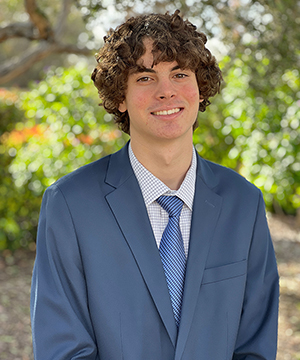
California’s Covid-19 State of Emergency lapsed on Feb. 28 and community planning groups will now be required by the Brown Act ensuring open public meetings to begin meeting in-person only.
Under the new guidelines, such groups may only conduct hybrid or remote meetings under special circumstances. There is also a state bill pending in the legislature, Senate Bill 411, that would allow advisory groups to host hybrid (in-person and remote) meetings. However, this bill has yet to be adopted.
“The Brown Act does not contain a grace period, so these changes take effect immediately,” said Nicole Darling, director of the City’s Communications Department. “City boards, committees, and commissions must comply with the open meetings requirements of California’s Ralph M. Brown Act. The Brown Act’s provisions concerning so-called ‘hybrid’ meetings will be in effect, resulting in changes from current practices. Among them: members of boards, committees, and commissions will not be able to attend meetings virtually except in specific circumstances, and virtual attendees will not count toward the number of members needed to attain a quorum.”
“The emergency provisions of the Brown Act related to virtual meetings (i.e. by teleconference) will no longer be in place and all CPG meetings will need to be either conducted in-person or comply with Brown Act requirements for virtual meetings,” said City deputy planning director Tait Galloway in a letter to City staff dated Feb. 16. “Starting March 1, all CPG meetings, including standing subcommittee meetings, are to be conducted under the Brown Act as they were prior to Gov. Newsom’s Covid-19 declared state of local emergency. CPGs will need to secure an accessible physical meeting location or comply with the requirements for the Brown Act for virtual meetings.”
Brown Act requirements of CPGs include:
– Posting agendas at ALL teleconference locations containing information about the meeting, including the street address of all teleconference locations.
– Allowing the public access to ALL teleconference locations. A teleconference location is a physical location where a CPG member is attending the meeting virtually such as a home or office.
– Allow the public to make public comments from each teleconference location.
– All votes are to be taken by roll call.
CPG members attending virtually will need to disclose their teleconference location on the agenda and allow public access to their location, including giving personal addresses. CPGs are responsible for providing all necessary technology to conduct a teleconference meeting at ALL teleconference locations. This includes computers, wifi access, and audio/visual equipment. Also, anytime there is a technical interruption that prevents the CPG from broadcasting the meeting or prevents the public from providing comments remotely, the CPG cannot take further action on action items until public access is restored.
Reacting to the new rules strongly suggesting planners return to pre-pandemic live meetings, community leaders in La Jolla said they’ve either modified their group bylaws to continue hybrid meetings or were resigned to resuming live meetings. But there was blowback from one advisory group which said many of its members objected to the change.
“The La Jolla Shores Association provisionally approved changing our bylaws to delete the Brown Act except if required on rec council matters,” said Janie Emerson, president of LJSA, which speaks for La Jolla Shores neighborhood.” She added, “Bird Rock Community Council has a similar set-up. They only do Brown Act a couple of times a year when they have their maintenance assessment district reports.”
“La Jolla Parks and Beaches Inc. has been meeting in person only for the last few months,” said group president Bob Evans noting, “The technology required for quality hybrid meetings was too cost-prohibitive for us. When we first tried hybrid setup at our meetings with multiple laptops and extra mics, the meetings became too disruptive and conversations became disjointed.”
“The La Jolla Community Planning Association had its first in-person meeting in three years recently at the LJ Community Rec Center,” said group president Diane Kane. “Our regular time slot at the Rec Center was curtailed, so the meeting was brief. Turnout was low for both trustees and the general public. Several people told me that they would not –or could not – go to in-person meetings due to health concerns, travel, and family scheduling conflicts.”
Added Kane, “If our elected officials wanted to discourage democracy they couldn’t have done a better job than requiring a return to in-person meetings. Most people find them an inconvenient time suck, especially when compared to virtual and hybrid meetings. I strongly encourage the State Legislature to quickly adopt SB 411that allows community groups to continue using 21st-century technology. Virtual and hybrid alternatives have been successfully used for the past three years to comply with the Brown Act meeting requirements. Our laws need to keep up with the social change to keep our democracy healthy.”





